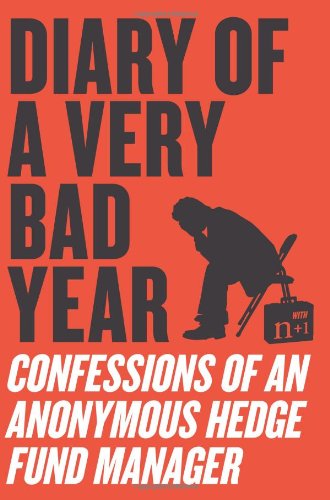What do you think?
Rate this book


260 pages, Paperback
First published April 20, 2010
... a trade that a lot of hedge funds had on, maybe not at the end of the year but during the year, was they were short the most junior tranches of subprime mortgage secularizations, because they thought that was going to go really terribly. So they were long the senior tranches many times the amount that they were short the more junior tranches. Because, you know, what's going to happen is the junior tranches will be utterly destroyed, and the senior tranches will decline maybe a little bit, but I can kind of make the trade so that it's carry-neutral. And the assumption is that the senior tranches will be much less sensitive, will move a lot less. But what happened is that because every hedge fund had that trade on, or so many hedge funds had that trade on, and had to liquidate, that meant that the junior tranches actually preformed less poorly than they would have, because people had to buy them back, and the senior tranches got utterly destroyed.
a portrait of a mind at home in the world, moving with agility and certainty, though not without doubt, not without regret, and not without making its share of mistakes.
“It is not acceptable that the six largest financial institutions in this country have assets of almost ten trillion dollars, and issue half of the mortgages and two-thirds of the credit cards. That is too much wealth and power in the hands of a few. If Teddy Roosevelt were alive today he'd tell us to ‘break them up.’ And he'd be right. These huge banks must be broken up.”
-Sen. Bernie Sanders
“Our bank system has become unfortunately very concentrated. Deconcentrating the banking system is going to be an important project going forward, but right now it’s highly concentrated . . . The approach of the Bush administration and the Obama administration has been insufficiently tough with the financial sector . . . There are certain institutions that need to be shot or nationalized or rapidly downsized, or institutions where losses need to be distributed to the point where shareholders are wiped out.”
-Anonymous Hedge Fund Manager